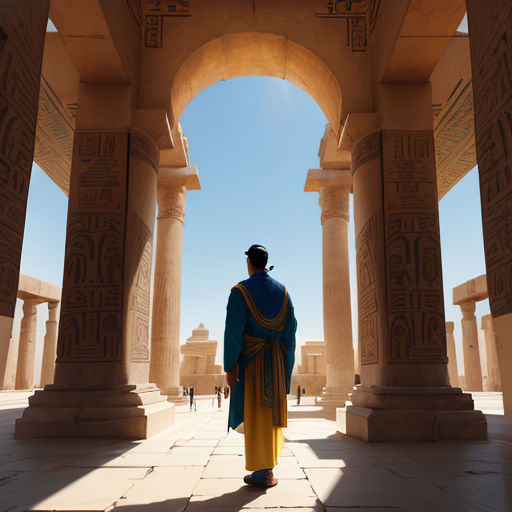
The Cult of Aten
By Storybird

06 Oct, 2023
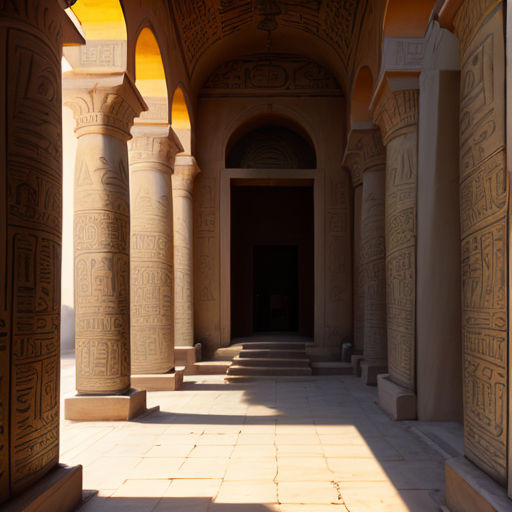
In the land of ancient Egypt, there lived a man named Meryaten. Meryaten was different from others, not content with the traditional polytheistic beliefs of his people.

Meryaten had heard tales of an Almighty God and began his own interpretation. He believed that there was only one God, and all the Egyptian gods were manifestations of it.

He named this God, Aten. This name was not entirely new; it was one of the Egyptian sun gods. But Meryaten gave it a new meaning.
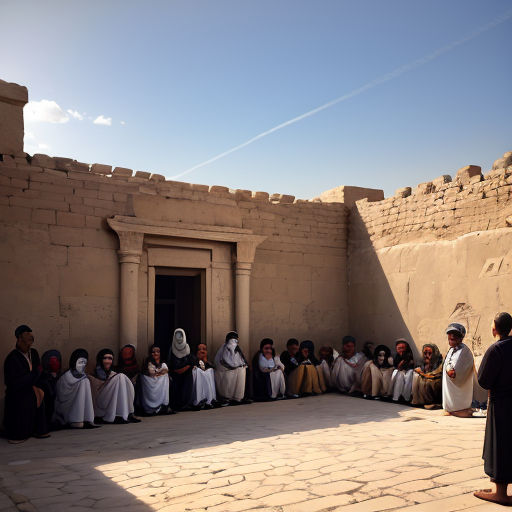
He preached his beliefs to anyone who would listen. Some laughed, others ignored, but a few began to follow him. These followers formed a small group, sharing Meryaten's beliefs.

They became known as the Monotheistic Cult of Aten. They worshipped Aten as the one true God, a sun disc that shone its life-giving rays on everyone equally.

Meryaten and his followers faced a lot of opposition from the traditionalists. They were ridiculed, ostracized, and sometimes even threatened.
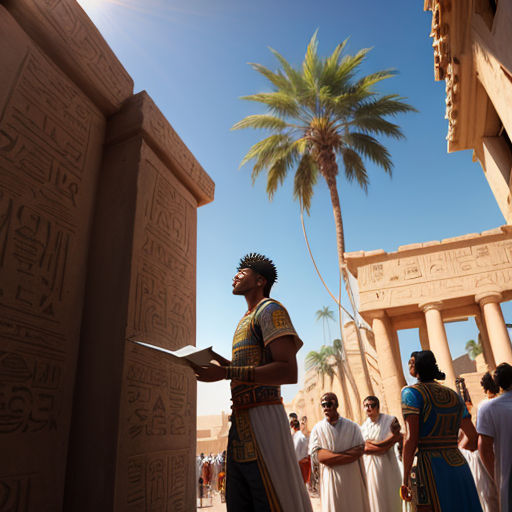
But Meryaten remained undeterred. He continued to preach about Aten, gaining more followers day by day. His conviction was so strong that it swayed many.
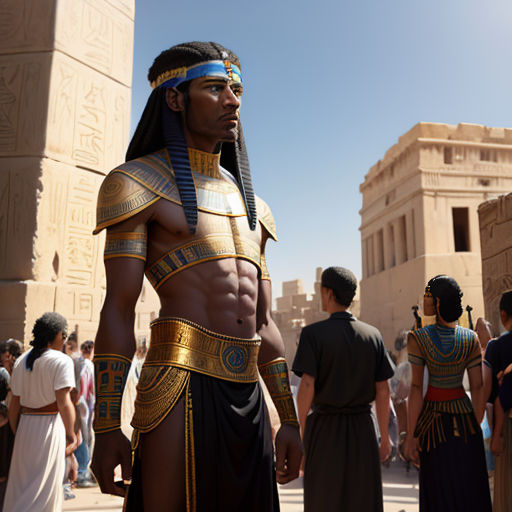
The cult of Aten began to grow. Meryaten's teachings spread, and so did the number of his followers. Slowly but surely, Atenism was gaining ground.
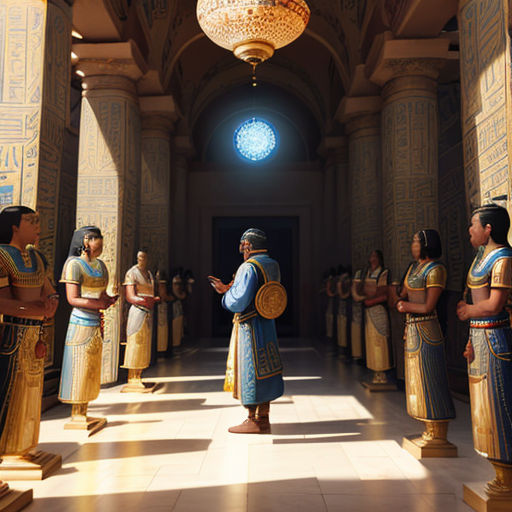
As the cult grew, so did Meryaten's influence. He became a known figure, and his teachings were now a topic of discussion among the people of Egypt.

Despite the opposition, Meryaten's followers remained loyal. They saw a truth in his teachings that they hadn't found in the traditional beliefs.

The cult of Aten stood for unity, equality, and peace. It was a beacon of hope in a time of chaos and confusion.

The opposition, however, was not ready to give up. They saw Meryaten and his cult as a threat to their power and influence.
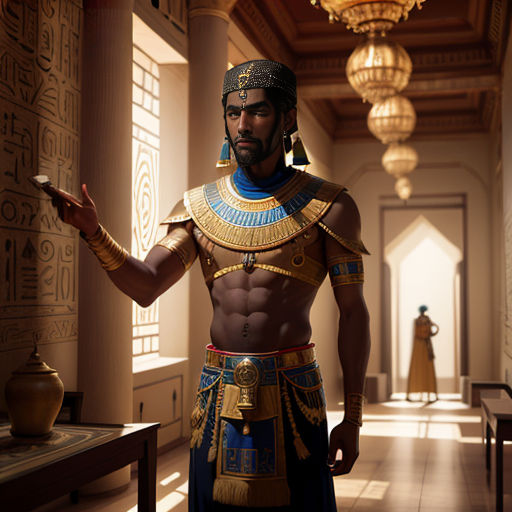
They plotted against Meryaten, planning to end his influence and erase the memory of Atenism. But Meryaten was no easy target.
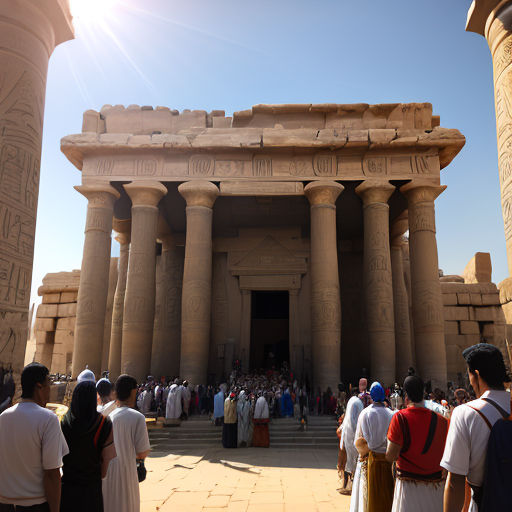
He remained strong, undeterred by the threats and plots against him. He continued to preach and spread his beliefs, drawing more people towards Atenism.

But the opposition was relentless. They used every trick in the book to bring down Meryaten and his cult. They spread lies, incited violence, and even tried to assassinate Meryaten.
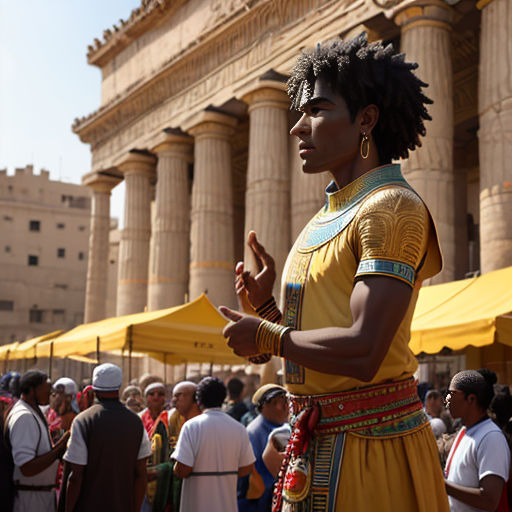
Despite their efforts, Meryaten remained alive and his cult continued to grow. The more they tried to suppress Atenism, the more it flourished.
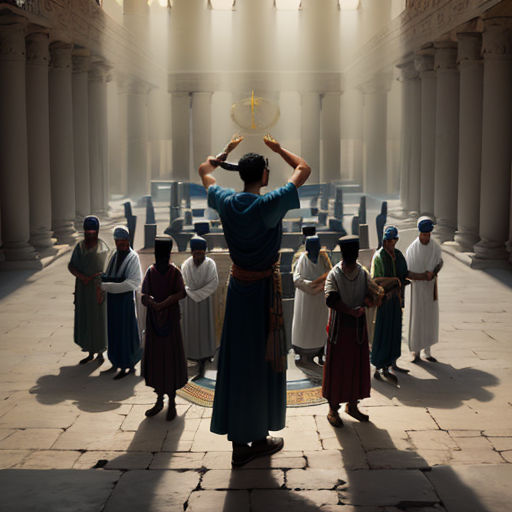
Eventually, the opposition realized that they couldn't defeat Meryaten or his cult. They had underestimated the power of belief and the strength of Meryaten's followers.

Over time, Atenism became a recognized and accepted religion. It didn't replace the traditional beliefs, but it had carved a place for itself in the religious landscape of Egypt.

Meryaten passed away, but his teachings and his cult lived on. His followers continued to worship Aten and spread the teachings of Meryaten.

Over the centuries, Atenism faded away, but its impact on Egypt and its people was undeniable. It had challenged the traditional beliefs and opened the door for new interpretations.

Today, modern day historians call it Atenism. They study it as a unique chapter in the history of Egypt, a chapter that challenged the norms and brought about change.
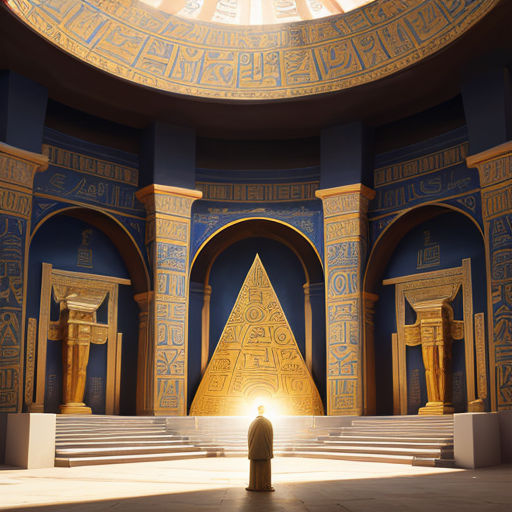
The Monotheistic Cult of Aten, led by Meryaten, was a testament to the power of belief. It showed that even in the face of opposition, truth and conviction can prevail.
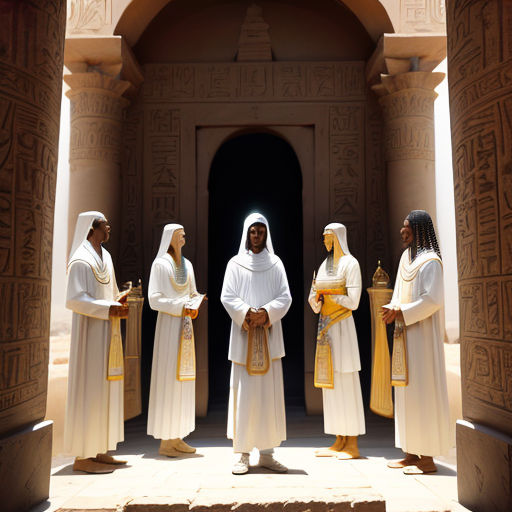
The story of Meryaten and the cult of Aten is a reminder that change is possible. It encourages us to question, to seek truth, and to stand up for our beliefs.

It also serves as a reminder of the power of unity. Aten, the sun disc, shone its rays on everyone equally, just like Meryaten had preached.

Meryaten's teachings live on in the pages of history, reminding us of the power of belief, the importance of unity, and the potential for change.

The Cult of Aten may have faded away, but its impact lives on. It serves as a symbol of hope, a beacon of truth, and a testament to the power of belief.
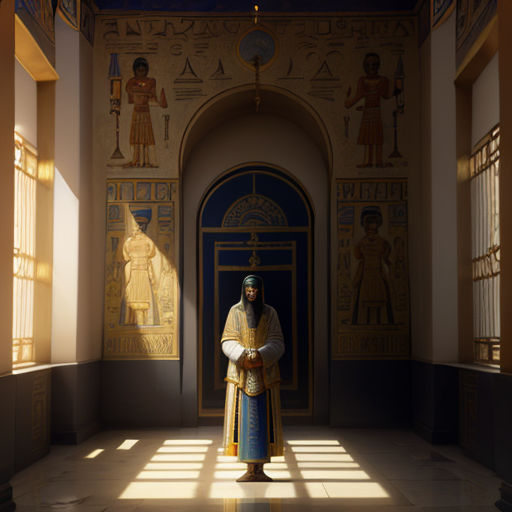
The story of Meryaten and the Cult of Aten is a part of Egypt's rich history. It is a chapter that challenges, inspires, and reminds us of the power of belief.

Today, we remember Meryaten, not just as the founder of a cult, but as a man of conviction. A man who dared to challenge the norms and stand up for his beliefs.
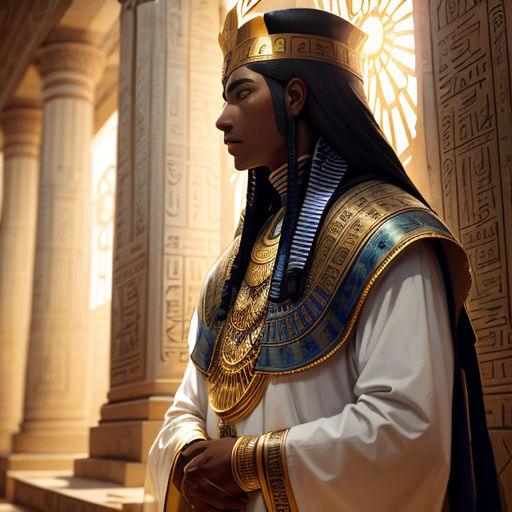
We remember the Monotheistic Cult of Aten as a symbol of unity and equality. A reminder that we are all under the same sun, receiving its life-giving rays equally.

And we remember Atenism as a unique chapter in the history of Egypt. A chapter that dared to question, to seek truth, and to stand up for belief.
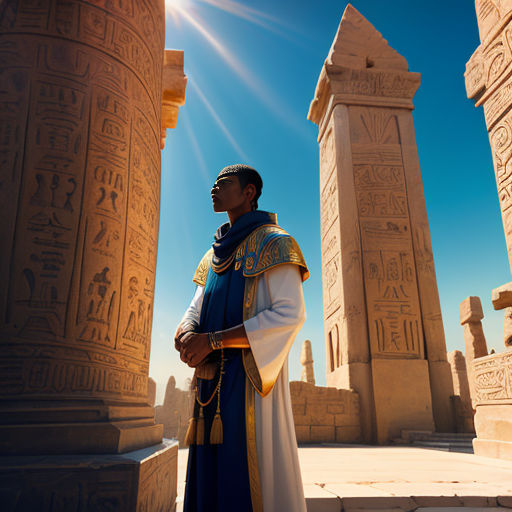
The story of Meryaten and the Cult of Aten is more than just a part of Egypt's history. It is a tale of conviction, belief, and the power of unity.
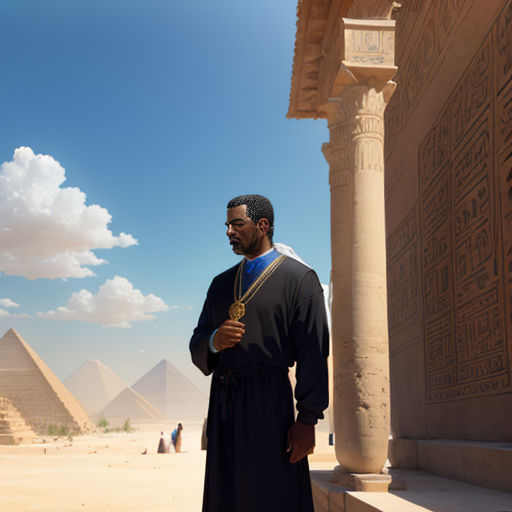
It is a reminder of the power of belief and the impact one person can have. Meryaten's story continues to inspire, reminding us to stand up for our beliefs and seek truth.
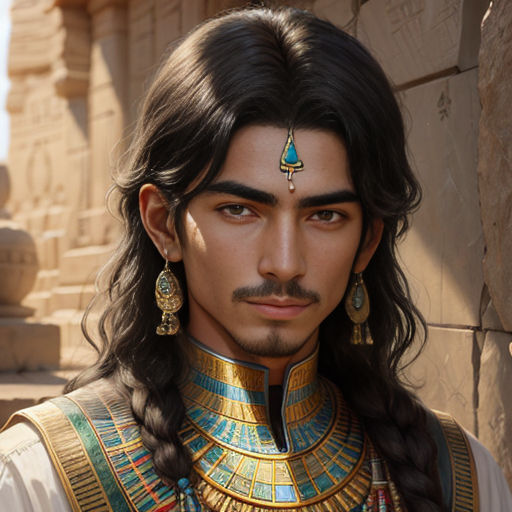
Meryaten's legacy lives on in the pages of history. His teachings, his conviction, and his belief continue to inspire and remind us of the power of unity and belief.
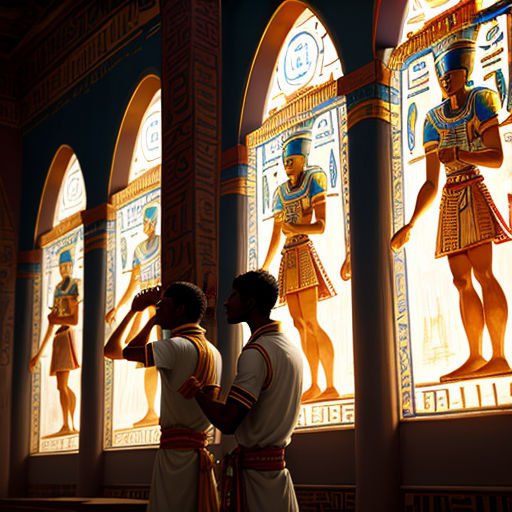
So, as we delve into the history of Egypt and explore the story of Meryaten and the Cult of Aten, let us remember the power of belief, the importance of unity, and the potential for change.
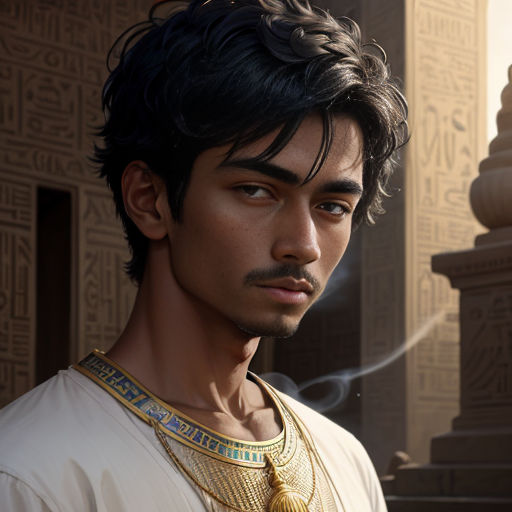
The story of Meryaten and the Cult of Aten is a testament to the power of belief. It serves as a reminder that even in the face of opposition, truth and conviction can prevail.